#The Library of Alexandria
Text
Time Travel Question 10: Ancient History III
These Questions are the result of suggestions from the previous iteration. I'm combining some similar ones, so some are going to be a little vague. I'm going to also split into a whole lot of different polls because there were so many good and creative ideas. (Seriously, I love the people of Tumblr).
Please add new suggestions for this category below if you have them for future consideration.
You are welcome to suggest specific things from the Library of Alexandria. There will be polls for that.
#Time Travel#The Acropolis#The Library of Alexandria#Eleusinian Mysteries#Indigenous History#Bacchus#Great Zimbabwe#Ancient Egypt#Akrotiri#Thera#Minoan#Jewish History#The First Temple#Picantes#Etruscans#Dacians
390 notes
·
View notes
Text
I love the Roman Empire trend but we should just take some time to remember that the meme was born because someone said on tumblr that they thought about the burning of the library of Alexandria every day, and I think that’s beautiful
#alexandria#tumblr lore#tumblr is where i go to enjoy the internet#roman empire#my roman empire#the library of alexandria
54 notes
·
View notes
Text
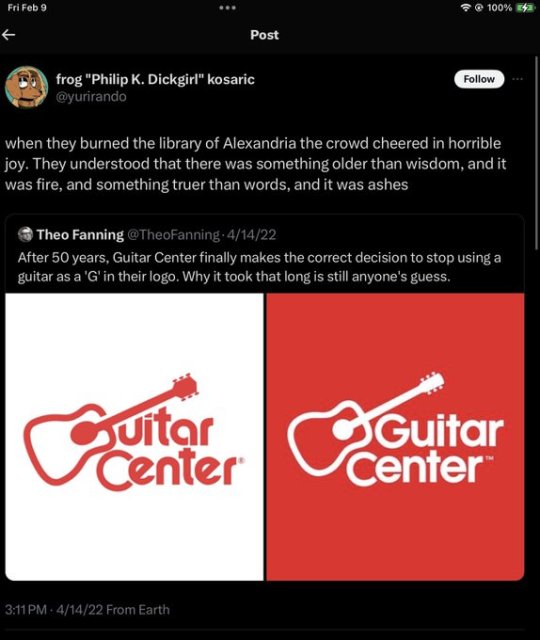
30 notes
·
View notes
Text
Every couple weeks I get exceedingly mad about the library of Alexandria or exceedingly sad about Laika the space dog.
50 notes
·
View notes
Text
What is an Alexandria incident?
An Alexandria incident is an event in which, intentional or not, a massive loss of data takes place, usually in an online context.
The death of Geocities was an Alexandria incident. The 2018 myspace data loss incident was an alexandria incident.
Geocities died intentionally, and the loss was the death of the whole service, and thus is considered an A type Alexandria Incident.
The Myspace Data Loss Incident was unintentional, and was the loss of only a portion of the service, and thus is considered a B type Alexandria Incident.
The Tumblr porn ban was intentional, and was a loss of only a portion of the service, and is thus a C type
The Theoretical D type, where the data loss was unintentional and resulted in service wide data loss happens usually to small scale services, or large services in their early days, I do not know of many good examples of this if any
The name, Alexandria Incident, comes from the burning of the library of Alexandria.
another example classification: the death of Flipnote Hatena was an A type Alexandria Incident.
#Alexandria Incident#the library of alexandria#it's true#Myspace Data loss incident of 2018#geocities#early web#Geocities shutdown#my brain has been on a kick of this lately and this is something that needs documenting#wait what commas in a tag?
38 notes
·
View notes
Text
I love the Doctor and Susan being horrified on behalf of Barbara when they think Ian was out on a date. Ian and Barbara themselves may not know what’s up but the Doctor and Susan do, lol.
#susan literally aghast and in denial as if ian would be cheating if it had been a date lol#and the doctor is such a parent waiting for his kid to get home. he might as well have gone ‘what sort of time do you call this?!’#i love audios#classic who#big finish#the library of alexandria#first doctor#susan foreman#ian chesterton#barbara wright#ian x barbara
34 notes
·
View notes
Text
Happy ides of March everyone! Library of Alexandria deserved better <3
3 notes
·
View notes
Text

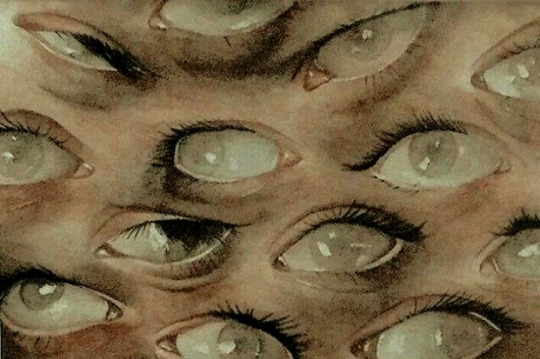
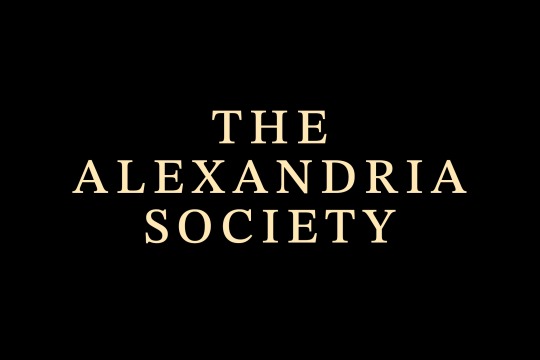


- THE ALEXANDRIA SOCIETY -
"Welcome to the Alexandria Society, you are here because you have potential, no more, and no less."
- ABOUT -
urban fantasy
third person pov
first draft / writing & planning
trigger warnings; blood, gore, ritual, tba
- TROPES & THEMES -
dark academia, wlw romance, knowledge based magic system (learned rituals, ingredients, language etc), hidden society, the demonic & the angelic, new adult, found family, power & corruption
- BLURB -
You can enter the Library Of Alexandria in one of three ways. One; become an initiate of the Alexandria Society and hope you make it to Librarian. Two; stumble across one of the many hidden entrances scattered around the world and make it past the wards. Three; summon a demon and make a deal, hope the demon doesn't take your soul in the process. Most witches choose option one.
Cypher Castellan is a legacy; a daughter of Librarians tracing their way back to the cult of Hekate. Magic is the only thing she has ever loved and the only thing that has truly loved her. With the potential of an entire bloodline singing in her veins, Cypher will become a Librarian. In her family, there's no other option.
Ridley Chance is a watcher, someone who sits on the sidelines and gazes at the lives of others, a daydreamer. Working at the old bookstore on campus, she knows all about the Alexandria Society, the rich and untouchable elite. Or she thought she did, before the door, before the invitation, before the veil lifted from her eyes. Can a girl who barely survived mundanity survived the darkly addictive world of witches?
June Apatow is a traitor. That's what they call witches who turn to forbidden magic. But the Alexandria Society does not know her source, only her potential. And June needs to become a Librarian, needs access to the secrets hidden in the Library of Alexandria. But the Trials of the Inititiates are far from a walk in the park, especially with the Rule Of Three tying June in with a legacy and a nobody. June has never been a team player.
- TAGLIST -
(ask to be added or removed)
@houndmouthed @moonscribbler @lockejhaven @aeipathys @cryptid-s-wips @seven-little-constellations @asralieswritingcorner
#writeblr#wip intro#writing#wip: the alexandria society#ch: cypher#ch: ridley#ch: june#witch#writers on tumblr#urban fantasy#the library of alexandria#magic#wlw#queer#queer writing
103 notes
·
View notes
Note
This blog is one of the best fandom resources I've ever come across so thank you mods for all your hard work!! I'm wondering if you have any recs for fics that deal with the burning of the library of Alexandria? Preferably a comfort type of fic with Crowley comforting aziraphale who I imagine would be quite distraught, but really I'm fine with any genre! Thanks again 🥰
Thank you and you’re welcome! We have some library of Alexandria fic recs here, and I’ve found a few more for you now...
Adventures in L-space by Santillatron (G)
Alexandria is burning. Aziraphale tries to rescue what he can, when help comes from an unexpected source.
I’ve been to every single book I know (To soothe the thoughts that plague me so) by Miele_Petite (T)
Aziraphale struggles to figure out what makes liking Crowley so wrong, while Crowley struggles to understand why he likes Aziraphale at all, and a library must burn, due to a hiccup in the ineffable bureaucracy.
you knew my name on sight by brinnanza (G)
“This wasn’t me, you know,” Crowley says, the words out of his mouth before he’s made the conscious choice to utter them. “Not just the library, but the whole civil war. You know me; I’ve mostly been getting drunk at Bacchanals.”
“I know,” says Aziraphale.
The Angel of Alexandria by ImprobableDreams900 (T)
Crowley has never had good experiences with Aziraphale and burning buildings filled with books.
Name the Sky by nieded (T)
In which Crowley has a forked tongue and cannot speak, resulting in 6000 years of misunderstandings, miscommunication, and a discovered secret.
Or: He’s the principality of deja vu, the rasp of broken laughter, and the song of nightingales outside of windows in the witching hour. He is the guardian of brief encounters after centuries apart, the splatter of turpentine, of unspoken words in soft moments without witness. It frightens him, the way Crowley slinks just outside of his periphery, like trying to hold water in his hands.
It’s Lit: How to Burn a Lot of Literature by AdhocPeacock (T)
The city of Alexandria draws Aziraphale and Crowley to it for vastly different reasons: one wants to protect what remains of the library and stop the city from falling once more, and the other just wants the angel to leave town before he gets burned.
But neither an angel, a demon, nor heaven or hell can stop the tides of change.
- Mod D
68 notes
·
View notes
Text
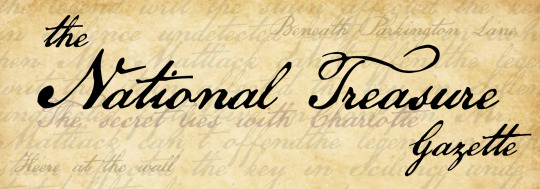
“It Belongs to the World” How did they actually split up the treasure?
Recently I came across a post that got me thinking about how splitting up the treasure would actually have gone.
Ben famously says that
“There's thousands of years of world history down there. And it belongs to the world, and everybody in it.”
We can presume this is what happens, since Ben lists “the Smithsonian, the Louvre, the Cairo Museum” as examples and three months later, Team Treasure has been invited “to Cairo next week for the opening of the exhibit.”
Presumably this is the proposed exhibit at the Cairo Museum.
But like…how was it divided?
Ben’s proposal is a noble one, but it raises all kinds of questions. The antiquities and museums world is steeped in questions, arguments, lawsuits and debates over who owns what and why.
More below!
Worldview A
One way to approach the problem would be to give X artifacts to the top twenty or so artifact-keeping institutions in the world, Y to the next 50, Z to the next 100, and so on. That would help ensure the most people got to see a selection of the treasure at their local museum.
That in itself is a bit of a misconception because there are huge global inequalities over who has access to museum spaces. This is especially true when the artifacts of one culture are housed in a museum in a distant country (cough, cough, Britain).
So in this way the treasure is divided evenly, but justice isn’t being done according to who has a cultural claim to the various artifacts. Because what if the thing that your ancestors contributed is halfway around the world? There’s a danger in viewing the treasure as units of treasure-stuff divorced of culture.
I don’t think this is what Ben means, but there’s a lot of leeway in his words. Who is “the world” in his mind? Is it only those top twenty institutions? Who constitutes the “everybody” who should have access?
And maybe most importantly, there are two ways to interpret “it belongs to the world.” One is the view I’ve just described where the treasure belongs equally to the world now. There was no treasure, now there is treasure, and everyone should get an equal or proportional piece (i.e. the more visitors per year, the more pieces you get.)
In this view it would make sense to “mix up” the treasure so that everyone gets to see a selection, a little slice of world history.
Worldview B
There doesn’t seem to be a lot of equity in dividing the treasure evenly/proportionally like this. The other way to to interpret “it belongs to the world” is less transactional and more relational. This stuff belonged to somebody. It all came from somewhere—a whole bunch of somewheres—and those places should have it back. It’s pieces of their individual histories that were tucked away and now have the chance to be rediscovered and put in context and conversation with the places that they came from and the peoples who made them.
This is the view of the treasure distribution I choose to take. You could argue the movie takes this position too, or at least doesn’t rule it out. The main evidence here is the acknowledgment that a good deal of what we see of the treasure—both in the lore-setting sequence in the beginning and in the treasure room—came from Egypt. Ben specifically points to the Cairo Museum as one of is examples, and that’s where they’re going at the end.
Even this isn’t a clear-cut solution though.
Let’s take the scrolls from the Library of Alexandria as an example.
Case Study: The Alexandria Scrolls
At the time of the Library, Alexandria was in an Ancient Greek state under the control of the Ptolemaic Kings. It was curated by Greek scholars, funded by Greek kings, and the first recorded head librarian’s main work was to establish canonical texts for the Homeric epics and other early Greek poets.
But Alexandria is in Egypt, having been conquered by Alexander the Great several decades before the founding of the library. Though early kings incorporated Egyptian customs only as needed to maintain power (such as declaring themselves Pharaoh), successive generations adopted more and more Egyptian customs.
And the texts housed in the library came from all over the ancient world. To gain texts for the library, the Ptolemaic Kings had strict and well-funded text copying policies. Some sources report that ships coming into Alexandria were searched for texts which were confiscated, copied and then kept, with the copies being returned to the ship.
So who has claim to the scrolls?
And remember, it could be months, years, or even decades before anyone is able to read them. The papyrus is likely too fragile to unroll.
Some of the scrolls could go to Alexandria and Cairo, others to Athens and Rhodes (both had thriving book markets at the time, and contributed many texts to the library).
And that’s assuming these particular writings or other features of them don’t suggest influences like Macedonia (now parts of Bulgaria), the Byzantine empire (in what is now Turkey), or other ancient Greek sites.
What's in a treasure?
There are many Egyptian artifacts visible, likely from many different dynasties and periods. The armies of the first crusade came from France, Flanders (now part of Belgium), the Holy Roman Empire (now Germany), and southern Italy. The suits of armor that are visible in the treasure are likely from later periods in Western Europe. There are likely artifacts belonging to the Jewish diaspora incorporated when the treasure was hidden in the Temple of Solomon.
The hanging lanterns visible in the upper part of the treasure room might be Ottoman or Byzantine. We saw Christopher Columbus’s ships in the intro, so Spain and Portugal are involved too, as is the Roman Empire, which stretched over much of the area we’ve talked about already.
The silk road transported goods from all over East and Southeast Asia, and Asia minor. I wanna say there are some terra cotta worriers in there but I might be imagining that? The Egyptian kingdoms and Greek city-states did trade with groups in what is now Ethiopia, Saudi Arabia, Sudan, Jordan, Morocco, Lebanon, Syria, and more.
Mansa Musa once traveled to Egypt with so much gold that he crashed the Egyptian economy in a matter of days. If any of that gold is in the treasure, it belongs in Mali.
I’m barely scratching the surface, but my point is that there’s a lot of artifacts from a lot of places in the treasure. It would likely take teams of scholars, historians, and archivists years to unravel what it all is and who it belongs to.
There also absolutely be tension, disagreements, and possibly outright fights over some of the artifacts, their meaning, and their origins. Scholars in niche fields are not exactly known for always getting along, and the stakes are high here. As Ben points out, world-changing, history-redefining high.
So why the fuck didn’t we talk about the ramifications of finding the treasure in the sequel?
Also, all that shit Sadusky has in EoH should be in the Smithsonian WTF.
Conclusion
The world is massive, history is vast, and humans make all sorts of incredible things.
I so wish we'd gotten to see more of the treasure in the second movie, like some of the exhibits Team Treasure went to. Ben never wanted the money, he wanted the history. I wish we'd gotten to share a bit more if this rediscovered history with him.
#the national treasure gazette#national treasure#ben gates#world history#the library of alexandria#articles
14 notes
·
View notes
Text
Time Travel Question 12: The Library of Alexandria (Greek Edition)
164 notes
·
View notes
Text
The House of Wisdom
I know people get annoyed about the destruction of the Library of Alexandria, but I think they should also be upset about what the Mongols did to the House of Wisdom.
Founded in the late 8th century, also known as the Islamic Golden Age, the House of Wisdom was a public library, observatory and academy located in what is now Baghdad, Iraq. There were rare books and Arabic poems, and plenty of translations of texts from Arabic, Syriac, Chinese, Sanskrit and Greek. Research was conducted and scholars had access to information from India, Greece and Persia. Scholars could study astronomy, maths, medicine, science and philosophy. Some of the astronomers worked on improving the astrolabe, which was used by Muslims to find Mecca and could also help travellers plan their journeys.
The House of Wisdom was in Baghdad, which at the time was the capital of the Abbasid Caliphate. This meant that plenty of people, including scholars, would visit the city. Some notable examples are al-Jahiz (who lived to be 89, and apparently died when a stack of books fell on him); al-Kindi (the father of Arab philosophy) and al-Ghazali (a Mujaddid who wrote "The Incoherence of Philosphers"). al-Jahiz taught at the university and wrote there. In one of his books he discusses evolution and argued that dogs, wolves, foxes etc probably shared a common ancestor with four legs and a tail. One scholar, al-Ma-mun, put together the most detailed map of the Earth (for its time - it looks like North Africa, Europe and parts of Asia to me. https://www.pinterest.co.uk/pin/486177722268804983/ ).
The Mongols destroyed the House of Wisdom in 1258 when they sieged the city. Hulegn, the grandson of Ghengis Khan, attacked the city and destroyed hospitals, mosques and libraries. The attackers threw all of the books into the Tigris river. Legend says that for days afterwards the river water was turned black with ink and red with blood.
#the house of wisdom#the library of alexandria#baghdad#iraq#islamic golden age#mongol invasion#ghengis khan#hulegn#al-jahiz#al-kindi#al-ghazali#islamic scholars#muslim scholars#history
3 notes
·
View notes
Text
the worst destruction is neglect
#tiktok#library#the library of alexandria#libraries#conservation#historic preservation#books#scrolls#history#archives#papyrus
6 notes
·
View notes
Text
AO3 is the modern library of alexandria if the library of alexandria was made up of fanfic
6 notes
·
View notes
Text
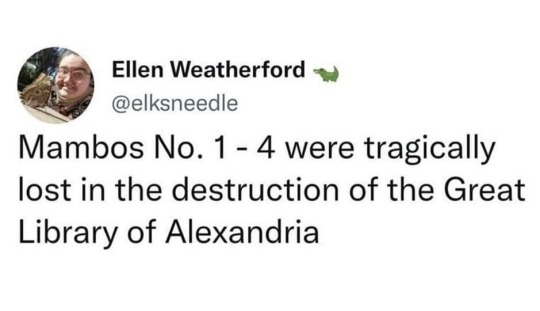
The (sad) trumpets 🎺 🎺🎺
2 notes
·
View notes
Video
youtube
We've all heard about how the Library of Alexandria held the great knowledge of the ancient world and was burned down, setting us back up to 1000 years due to lost texts. But the truth is, it's a lot more complicated than that, and a lot of facets of this legend don't even add up at all. Come learn with me about the truth about this fantastical myth!
12 notes
·
View notes